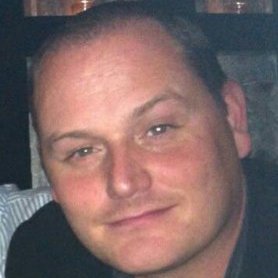Chris Poulin
Chris Poulin is Managing Partner of Patterns and Predictions, a predictive analytics company. He is co-inventor of the Centiment system, a full semantic analysis based asset trading system. He is coauthor of the Patterns and Predictions tool, a Bayesian classification and decision engine used in universities worldwide, and by clients such as the Toyota Motors Corporation.
Chris was formally the Chief Architect and VP of Advanced Technology of a commercial contract in Knowledge Discovery (KD) systems for the US Intelligence community. He is also a patent holding inventor in scalable web data systems, with patents pending in Analytics and Information Retrieval/Search. He has participated in graduate study at MIT as both student and lecturer. He was recently named a Co-Principal Investigator for “The UMass Cluster Workshop”, and in this capacity was recently a speaker on commodity infrastructure at the 2nd Sony/IBM/Toshiba Workshop on the Cell/B.E. Processor, and High Performance Computing.
Chris earned his B.A. in Political Science/Sociology at Boston University in 1996. He completed certificate programs in: Digital Networks, Embodied Intelligence, Neural Networks, and Bioinformatics at the Massachusetts Institute of Technology (MIT) from 1997 to 2004. He is a member of Linguistic Data Consortium (LDC), International Society for Bayesian Analysis (ISBA), and the Association for the Advancement of Artificial Intelligence (AAAI).
He holds patents Network transaction method and Defining the semantics of data through observation, and a patent pending in Collaborative Predictive Model Building.
Recent press:
PhysOrg article Scientists Write Guide to Build Supercomputer from Sony Playstation 3 said
“UMass Dartmouth Physics Professor Gaurav Khanna and UMass Dartmouth Principal Investigator Chris Poulin have created a step-by-step guide to building a home-brewed supercomputer that can reduce the cost of university and general computing research.Found at http://www.ps3cluster.org, the resource fully illustrates how to create a fully functioning and high performance supercomputer with the Sony Playstation 3.
‘We hope to continue to bring supercomputing to a broader audience by providing tools that simplify the use of these systems,’ said Poulin, who specializes in distributed pattern recognition and artificial intelligence.”
